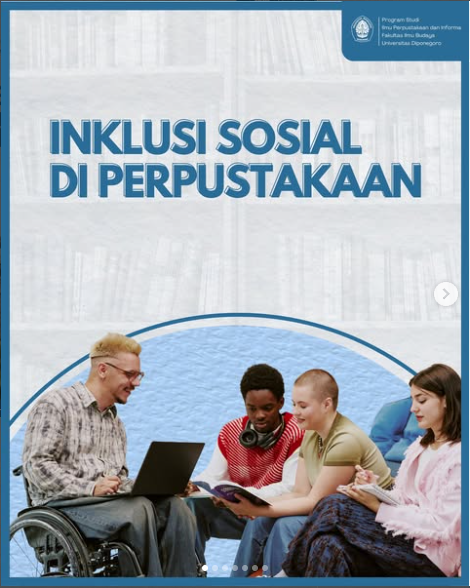Library Science Study Program of Diponegoro University again held a Guest Lecture via the Zoom platform on June 25, 2022. Raising the topic “The Urgency of Librarian Scientific Communication Competence in Era 5.0”, the Undip Library Science Study Program presented speakers from one of the lecturers of the Library Science Study Program Universitas Brawijaya, Dr. Mukhlis , S.IP., M.IP. This Guest Lecture is open to the public and is mandatory for students of the Undip Library Science Study Program. Attended by 267 participants, this Guest Lecture ran smoothly with high enthusiasm from the participants.
Mukhlis said that scientific communication occurs through scientific dialogue. With the scientific dialogue, it will have an impact on the formation of social networks through sharing, the existence of sitir (cite), and ongoing discussion (discuss). Through these social networks, scientific communication can form a social space. This social space will create social relations between individuals, groups, and organizations because of intellectual transactions carried out in scientific dialogue.
Furthermore, Mukhlis emphasized that librarians can be involved in scientific communication, because librarians are actors. Librarians have contributions as writers, and also play a role in facilitating readers through the libraries they manage. The library itself is a place to present scientific communication products through scientific publications in the form of print, electronic, or recording files that they collect. All scientific communication products can be obtained through the library. However, a library also needs to develop innovation and usefulness in terms of information effectiveness, system efficiency, satisfaction, and convenience in this Era of Society 5.0.
In terms of innovation and usability, Mukhlis mentioned the development of libraries as IT-Based. Where this development is not just the implementation of IT alone, but librarians as library staff must be able to understand the potential of technology. Especially considering that librarians play an important role as collaborators, contributors, and facilitators. This can be developed by improving performance through skills and competencies as the main actor. As the end of the material session, Mukhlis advised, “Be a great (competent) librarian who is always involved in every phase of scientific development.”




